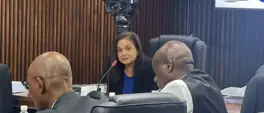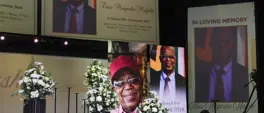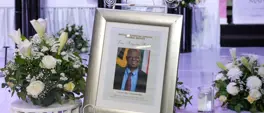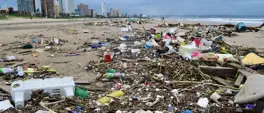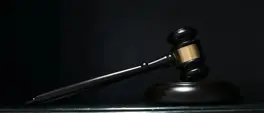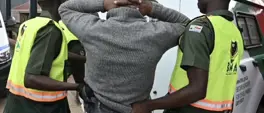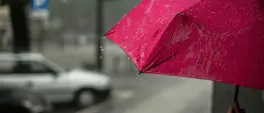World Breastfeeding Week: 'It might be natural but does not always come naturally'
Celeste Martin
3 August 2024 | 9:02"It really takes a village to breastfeed a baby, it's not a one-person job." - Stasha Jordan, Executive Director at South African Breastmilk Reserve
Gugs Mhlungu spoke to Stasha Jordan, Executive Director at South African Breastmilk Reserve.
Listen to their conversation in the audio clip below.
Breast is best.
"Breastfeeding is really the first vaccine for the baby, it grows the baby's immunity, it's tailor-made to actually protect the baby from a lot of infections... It's really important that babies do receive breast milk exclusively for the first six months."
- Stasha Jordan, Executive Director at South African Breastmilk Reserve
Not all mothers are able to breastfeed their babies due to various reasons.
World Breastfeeding Week is observed every year from 1 to 7 August to promote and support breastfeeding.
The theme for 2024 is Closing the gap: Breastfeeding support for all.
"It really takes a village to breastfeed a baby, it's not a one-person job."
- Stasha Jordan, Executive Director at South African Breastmilk Reserve
"New mothers need breastfeeding support because whilst breastfeeding might be natural, it does not always come naturally for all moms. The breastfeeding journey differs from mother to mother."
- Stasha Jordan, Executive Director at South African Breastmilk Reserve
"Mothers need to be supported through their breastfeeding experience so that they do not give up because often times there will be challenges along the way. This is exactly why it is really important that we come together as communities to create enabling environments, workplaces and policy contexts that allow us to create a safe space for mothers and babies."
- Stasha Jordan, Executive Director at South African Breastmilk Reserve
"In the South African context, and in the context of developing countries, breastfeeding is a poverty alleviation strategy for communities that are not able to afford any other alternative. We have to empower breastfeeding because in this context, breastfeeding saves lives."
- Stasha Jordan, Executive Director at South African Breastmilk Reserve
The South African Breastmilk Reserve is a human milk banking organisation that collects and supplies donated breast milk for babies born with very low birth weight and hospitalised in the Neonatal Intensive Care Unit (NICU) in both public and private hospitals.
Over the last 21 years, they have established over 50 human milk banks. They currently run 22 banks in public hospitals.
"This is mums who themselves have babies in ICU that are expressing for their own babies and have an oversupply or it's mummies that are at home that are returning to work and have been starting to collect milk to stash for the purpose of exclusively breastfeeding for the first six months. What they find is that the more they express, the more they produce and when they have an oversupply, then that oversupply is directed towards us."
- Stasha Jordan, Executive Director at South African Breastmilk Reserve
If you want to find out more about the South African Breastmilk Reserve, donate breast milk, volunteer or make a donation, visit www.sabr.org.za
Scroll up to listen to the full interview.
Get the whole picture 💡
Take a look at the topic timeline for all related articles.
